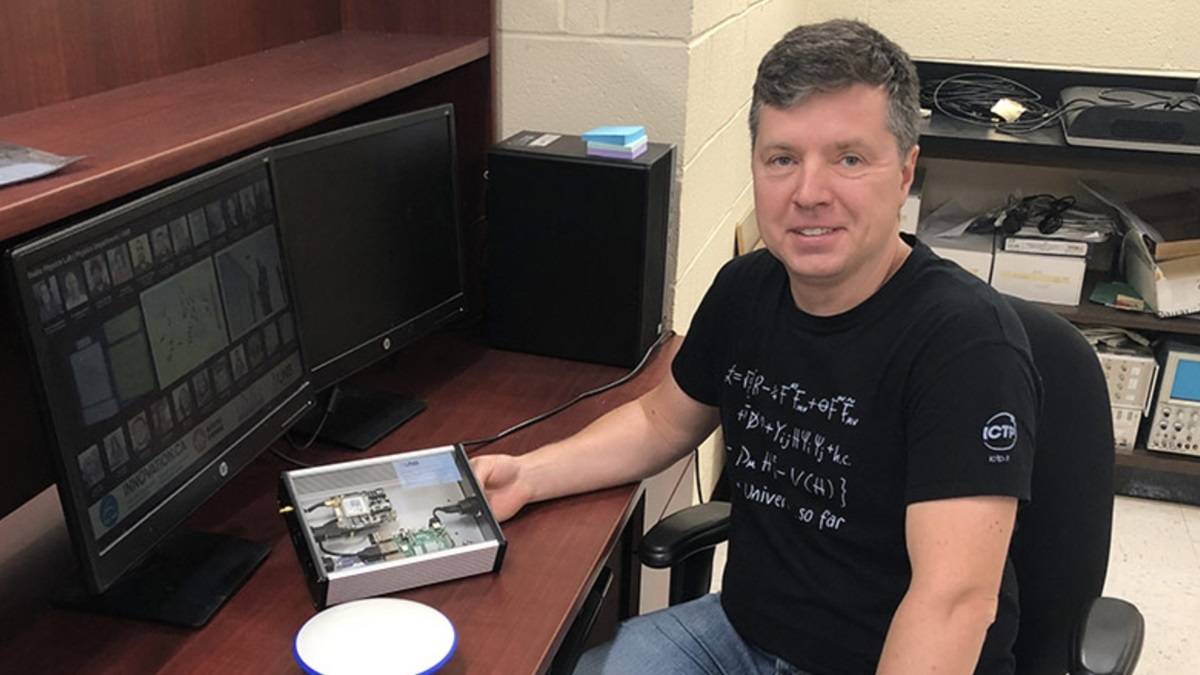University of New Brunswick Physics Research Opens New Opportunities In Atmospheric Science
Study in Canada: University of New Brunswick scientists have tested a network of low-cost sensors and found that they match the accuracy of expensive devices.
University of New Brunswick (UNB) scientists' latest study provides a cost-effective solution to the highly expensive devices used in atmospheric science.
The researchers of the Radio and Space Physics Laboratory (RSPL) in the department of physics and other colleagues tested a network of new sensors which are of low-cost. They used it during the recent solar eclipse and found that these devices matched the accuracy of the highly expensive devices.
Dr. Anton Kashcheyev, radio systems specialist, who led the project said, “Using low-cost, low-power equipment allows for denser data sampling, which can help us better understand the dynamics of the upper atmosphere at much smaller scales and with more detail that has not been achieved yet on a wide scale."

“It opens up opportunities for new discoveries, especially in regions where instrumentation is sparse or unavailable, such as in developing countries with less robust infrastructure, or isolated areas like the Arctic and Antarctica," he added.
More Details Of Low-Cost Sensors Used In Atmospheric Science
The team used 15 dual-frequency global navigation satellite systems (GNSS) receivers. This technology is used in GPS navigation systems. It is also used in the following areas - glaciology, natural hazards monitoring, space weather observation, groundwater monitoring, and others.
“We were able to demonstrate that TEC measurement can be done with low-cost equipment with similar, or even identical, performance. In particular, one of the major differences of the low-cost receivers with respect to scientific grade equipment is the stability of the reference clock, which is essential for precisely calculating the signal delay. Our group is currently working on ways to mitigate this limitation using signals from multiple satellites," added Kashcheyev.
The team collaborated with schools and placed 10 devices in these schools. It opened new opportunities for students of the province.
“Teachers and students were invited to two events organized by RSPL to help build awareness and interest in STEM disciplines in NB. In 2024, our team also ran a kiosk at the NB Teachers’ Association’s Council Day in Moncton, and hosted a one-day workshop at UNB. Both activities focused on space science broadly, and on the effect of the total solar eclipse on the upper atmosphere in particular. And, finally, our outreach team has developed and distributed a guide for teachers and students to support understanding and working with EclipseNB GNSS data. We’re now exploring additional opportunities to help students learn about GNSS and related science in the classroom," further added Kashcheyev.
Read more:
Pick your stage and get free guidance from counsellors who've helped thousands get into top universities.
 Starting research
Starting research Shortlisting colleges
Shortlisting colleges Exam preparation
Exam preparation SOP/LOR writing
SOP/LOR writing Scholarship & finance
Scholarship & finance Visa application
Visa application

